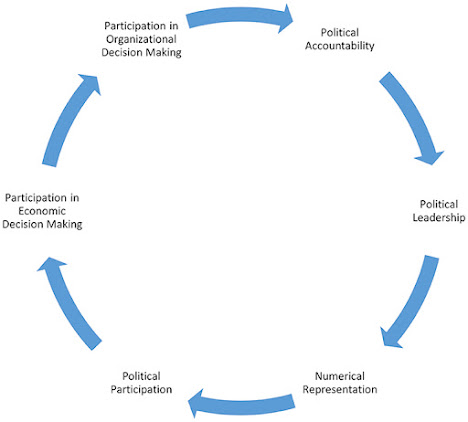It can be said that without sufficient sanitisation, access to clean water, and suitable hygiene facilities at home and in the workplace, it is disproportionately harder for women and girls to lead healthy lives in Africa, as they are undermined by fears of safety and a lack of productivity (United Nations, 2018). In my last blog, I explained how the impacts relating to water and gender in Africa are interconnected and multifaceted. Today, I would like to look into the facet which underpins many of the others and holds the explanation for, as well as the greatest potential to eradicate, many of the issues relating to water and gender that so many women still face today.
The governance of water and gender refers to the politics and decision-making behind water management and provision, whereby the involvement of women is significantly marginalised. This results in cultural diversities, restrictive laws, and institutional barriers, which results in disproportionate access to resources such as healthcare and education. Colonialism and its resulting Eurocentric education system has formed the basis of the vast inequality between men and women in Africa. The system was created around promoting male dominance in paid employment, and ultimately governance and decision-making, leading to the belief that women's participation in politics is merely a distraction from household duties.
The impacts that have resulted from this on women are felt at a range of scales; if the community focuses on irrigation for agriculture for example, then there will be less water available for women to use to complete 'duties' around the house such as cleaning. This means that women may have to walk further distances to collect water leaving them vulnerable to violence such as harassment. As this is already an issue relating to water and gender in Africa, which I will look into further in my blog, the inadequate decision-making and governance, therefore, compounds an existing impact, in turn exacerbating the problem. Moreover, the water source that the women then use to collect from, such as a running canal, may itself be used for washing clothes, resulting in one task compromising the other, as the two cannot occur in tandem.
At a personal scale, for women where improved water sources are available, they tend not to be utilised due to a lack of money. This means that where men may be making decisions aiming to improve access to water, the governance is at fault as the men themselves are not incentivised to pay for the maintenance of the improved sources as they don't require them, and the women can't afford to use them anyway, meaning there is a poor allocation of resources in which women can't even access better water sources even if they intend to. It is clear that women need to be increasingly involved in Water, Sanitisation, and Hygiene (WaSH) decision-making, although this will require a shift in certain cultural and social beliefs, which explains why little progress has been made so far.
This blog has looked at the overarching factor, which can be seen to underpin many of the impacts faced by women in Africa today. In my coming blogs, I will look into the different impacts on women themselves, and how we can work towards their eradication as well as equality regarding gender and water.

Hi Will! You mention that men are largely responsible for decision making, which disadvantages women and girls because their differential gendered needs are not accounted for in men's decision making. To what extent do you believe this is a result of cultural norms and power imbalances between men and women? I look forward to your response! :)
ReplyDeleteHi Arzoo, I think that cultural norms and power imbalances between men and women are significantly important in this context. Historic social structures and 'norms' in society will continue to play a huge part in decision making in Africa and will ultimately undermine progression unless the root of the problem is addressed.
Delete